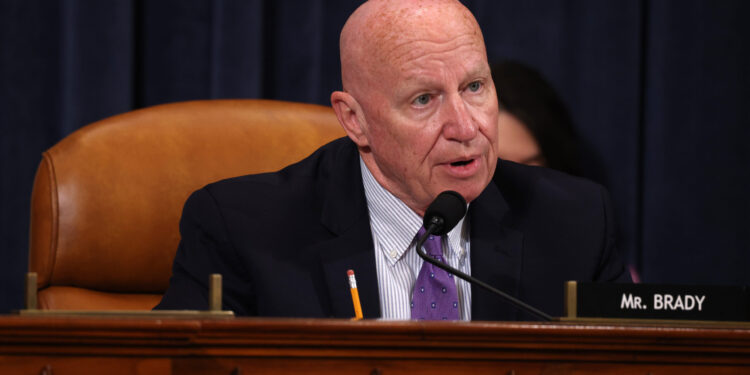Republican members of the House Ways and Means Committee requested details from Treasury Department officials on how the IRS is handling millions of unprocessed tax returns, according to a letter first shared with The Daily Wire.
IRS Commissioner Charles Rettig vowed in March to clear the backlog before the end of this year. However, the letter from Rep. Kevin Brady (R-TX) and Rep. Darin LaHood (R-IL) noted that the agency still has more than 7.9 million unprocessed returns and a total of 17.2 million returns less than two months before the deadline.
“We continue to conduct oversight on this matter and request a status update on Commissioner Rettig’s commitment to clear the backlog by the end of 2022,” the lawmakers wrote. “We are also requesting a written plan for the IRS to maintain healthy inventories and avoid large backlogs going forward.”
Another message sent earlier this year “questioned why increased unobligated funds allocated to the IRS had not been used to reduce the backlog and called for a report on significant actions that will be taken to mitigate the crisis,” according to the lawmakers. The IRS said that the agency was struggling under “the pandemic and legislative changes,” adding that officials “would share the efforts being taken to ‘reduce inventory to healthy levels’ in a verbal briefing.” The lawmakers, in turn, claim that the response was “inadequate” and “shows an unacceptable disregard” for the persistent bottlenecks.
IRS National Taxpayer Advocate Erin Collins, who is charged with representing taxpayer interests within the agency, has raised similar concerns. The official said in her most recent midyear report that the agency delivered refunds to paper filers within four to six weeks prior to the pandemic, while refund delays now generally surpass six months. According to Collins, the IRS processed 205,000 individual income tax returns per week during the month of May, falling short of the pace required to completely eliminate the backlog by the end of the year.
Brady and LaHood requested a status update on the backlog, an evaluation of the March plan to reduce the backlog, and a proposal to better manage inventories moving forward. “Ways and Means Republicans have sounded the alarm and urged the IRS to take significant action to get ahead of the problem,” the lawmakers concluded. “It is important for us to understand what worked and what did not.”
The backlog persists months after the Biden administration’s Inflation Reduction Act greenlit $80 billion in additional funding toward the IRS, which the agency will use to hire 87,000 new employees over the next decade. Among other objectives, more than doubling the agency’s payroll is intended to decrease wait times for phone calls and in-person help centers, as well as upgrade information technology used by agents.
Treasury Secretary Janet Yellen and other officials have promised that the new funding will not be leveraged to increase audit rates for American households earning less than $400,000 per year “relative to historical levels.” However, she failed to clarify that “historical levels” of audits were far higher as recently as one decade ago.
Indeed, a report from the Congressional Budget Office based on an earlier proposal to hire 87,000 new agents found that audit rates “would rise for all taxpayers,” even as higher-income taxpayers “face the largest increase.” Another analysis from Republican members of the House Ways and Means Committee found that the new agents would be capable of 1.2 million more individual audits per year, with nearly half impacting Americans earning less than $75,000.











